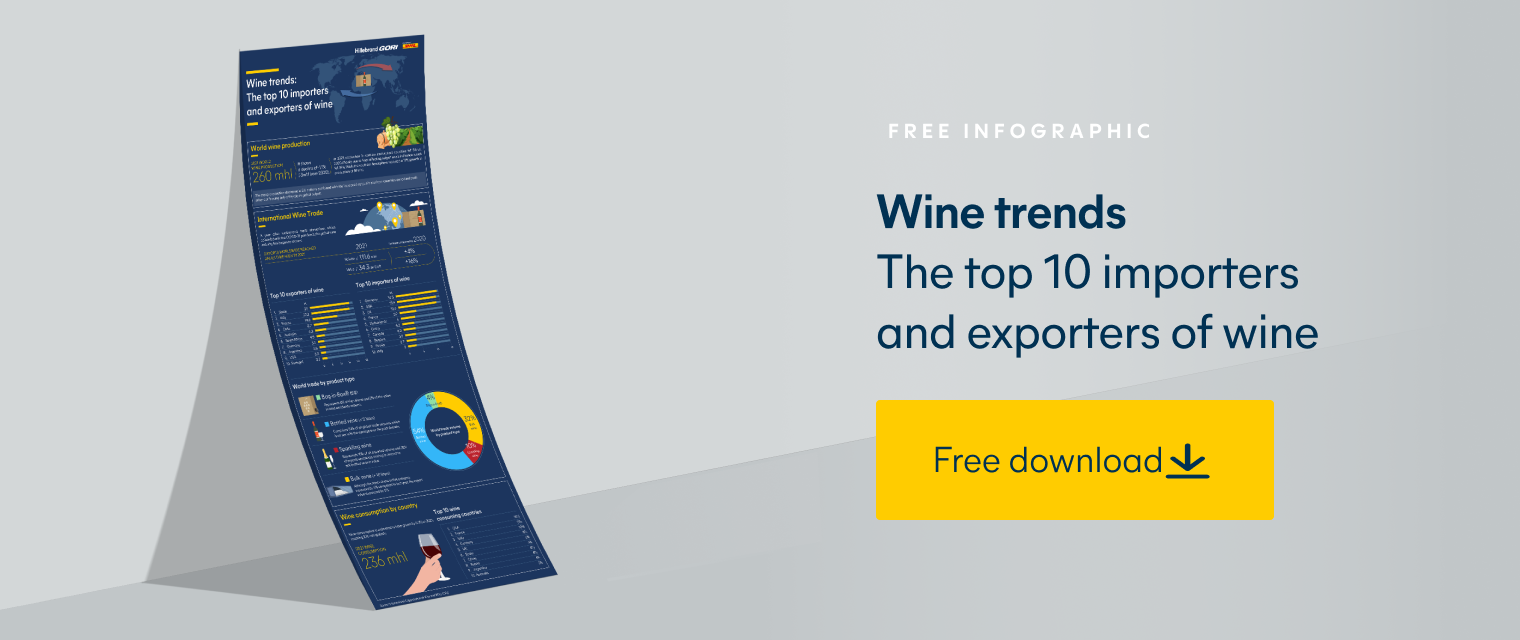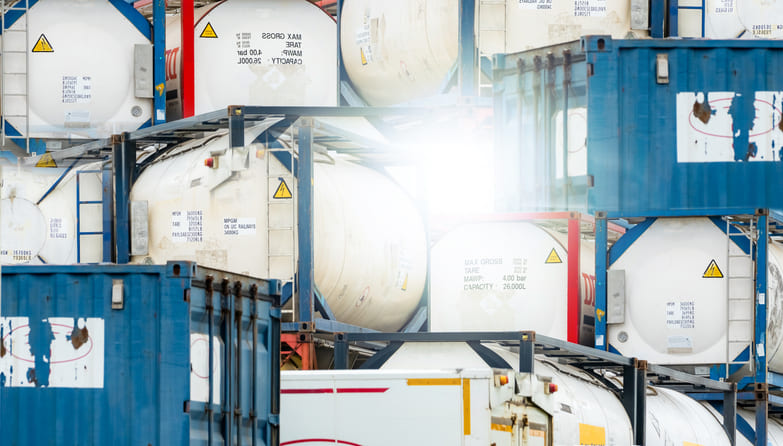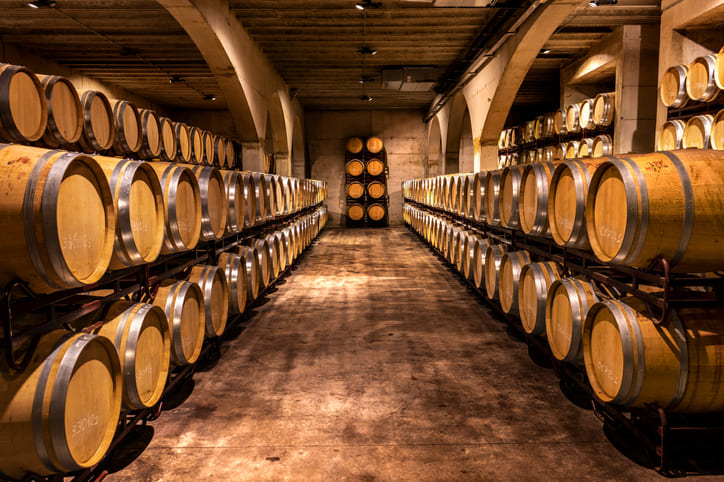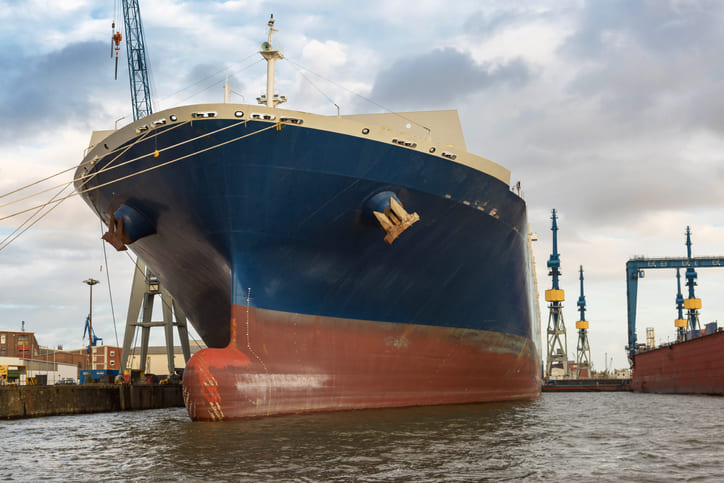The Secrets of Sea LCL every beverage buyer needs to know
Wineries, breweries and distilleries put a lot of care and attention into perfecting the taste, aroma, and scent of their beverages. As a buyer, you want to be confident that you can offer these products to your customers in the best possible condition. So, when you’re deciding how to transport your products, it pays to be aware of all your options.
While sea freight offers many benefits in terms of price, capacity and sustainability, people often believe it’s only cost-effective for moving large quantities of goods. But you should also consider sea LCL.
Sea LCL (less-than-container load) allows you to send shipments as small as a single case. Let’s look at how sea LCL can help you import your wine, beer, or spirits more efficiently.
What is sea LCL?
When someone mentions sea freight, you may think of full-container-load (FCL) shipping, which involves paying for an entire container to transport your beverages to your customer. FCL may be the best way to move wine, beer, or spirits when you have at least ten pallets to send, but there are often times when you want to send shipments that won’t fill an entire container, such as a few pallets.
With sea LCL, you can send smaller loads without having to pay the total cost of a shipping container. This is because LCL allows for the sharing of container space among two or more shippers and makes sea freight an affordable option for small quantities.
What does shipping LCL mean for your business?
Sea LCL offers you several advantages over FCL when it comes to transporting your wine, beer, or spirits:
Ship now, not later
With FCL, it usually isn’t cost-effective to send your container of beverages until you have received enough orders to fill it, meaning some of your customers will have to wait for their orders. Whereas sea LCL allows you to fulfill smaller orders for your wine, beer, or spirits promptly and regularly thanks to frequent and fixed departure sea routes. What’s more, if FCL containers are in short supply, you can rely on sea LCL.
Reduced your outlay
As we have seen, sea LCL allows you to save money compared to FCL. But because you’re sending smaller shipments you’ll be paying less in taxes and duties at any one time, freeing up your cash flow. What’s more, sending your beverages by sea LCL can be up to a fifth of the cost of air freight.
Respond to the market trends more rapidly
Thanks to frequent fixed departure sailings from Hillebrand Gori, sea LCL gives you the flexibility to respond quickly to emerging trends in the market. Knowing you can send smaller shipments at any time means you can diversify your inventory dynamically according to customer demand. You also don’t need to keep as much stock of any one product in your warehouse since it can be replenished easily through sea LCL.
Cut down on your carbon emissions
Sea freight is already one of the most environmentally friendly forms of commercial transport in terms of CO2 emissions per tonne of cargo per mile. By sharing containers and carbon overhead with other shippers, LCL allows you to reduce your carbon footprint even more.
LCL vs FCL
There are some disadvantages to LCL that you should bear in mind when planning the transportation of your beverages.
- Although the overall cost of transporting a pallet via LCL is less than shipping a full container of pallets, the total freight cost per individual pallet is slightly more expensive by comparison.
- Origin and destination charges, as specified in the incoterms® of your shipment, still apply to sea LCL.
- FCL containers usually clear customs faster than sea LCL shipments because each shipper’s pallets must be cleared, before the container can move out of the port.
- Sea FCL containers are packed at the winery by the supplier and unloaded at the delivery point by the receiver. LCL involves additional handling as it is packed and deconsolidated by the freight forwarder, which increases the potential risk of damage to your beverages.
Is LCL the same as Groupage?
So, what makes LCL possible? The basic concept of LCLand groupage are the key to making sea LCL a cost-effective option. But the service you receive from the freight forwarder or transport company will be slightly different. Think of it like this - LCL is a consolidation of goods into one container, whereas groupage is a grouping of similar products into one container.
LCL - Consolidation
Consolidation is the general term for what happens when your pallets are co-loaded into a container with pallets from other shippers. Many companies offering LCL will reserve sea freight space for your beverages and then outsource the consolidation process to third-party companies called consolidators or co-loaders. Your products will be packed with other goods from shippers also trying to reach the same destination, but what they ship might not be an ideal travel companion for your beverages. Another thing to note is that you will not be in direct contact with the company handling the shipment of your products .
Groupage
Groupage with Hillebrand Gori means your beverage pallets are only grouped and packed with other beverages. We understand that your wine, beer, and spirits are sensitive products that need special care during transportation. Grouping your products with similar shipments also offers them better protection from damaging odors and the right container choice will ensure they are safeguarded from extreme temperatures and humidity.
That’s why, once we collect your products and transport them to our warehouse, they will be stored and grouped only with other pallets of beverages. We then load these grouped shipments into dry, insulated or temperature-controlled containers to preserve the freshness, scent, and aroma of your products. After transporting the LCL container to the port of destination, we clear it through customs, deconsolidate it and deliver your pallets to the delivery point. An added benefit of our groupage service is that you have a direct relationship with the people handling your goods from collection to delivery.
As you only pay for the space required to transport a specific number of pallets each time, sea LCL is a cost-effective alternative to sending your beverages by FCL. With a freight forwarder that understands beverages like Hillebrand Gori, you can be confident that your wine, beer, or spirits will reach their destination in optimum condition and with the taste consumers expect.
Some of the world’s most reputable brands rely on Hillebrand Gori to deliver their products safely. We have built our reputation by catering to the specific requirements of every product we handle, and our expertise has led us to develop innovative solutions like our protective insulation liners and food-grade flexitanks.
If you want your wine, beer, or spirit shipments to be treated with extra special care, reach out to Hillebrand Gori.





